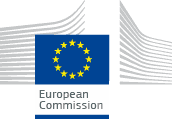 |
Review study on Standby Regulation |
Methodology
The methodology used to perform this study follows a simplified approach, largely inspired by MEErP. It does not follow all of the steps, because this is a review study of a regulation already in place.
Study tasks could entail, among others, the following:
A. Assessment of scope
Considering current legislation, studies and other literature, including contacting market surveillance authorities to collect experiences from applying current legislation. The focus of this task is assessing the scope of the Regulation, the description and categorisation of products.
B. Identification of stakeholders and case studies
These will be identified with the aim of establishing relevant cases for data collection.
C. Data collection
Data will be retrieved from identified stakeholders and/or for case studies in task B, with focus on:
-
Sales volumes
-
Technologies & their standby/off-modes and networked standby condition (current & future)
-
Energy consumption
-
Energy savings potentials
-
Costs of implementing future technologies
- Potential issues with understanding of suggested categorisation of products in market surveillance
Due to the nature of these data, they will be collected in both quantitative and qualitative form.
D. Establishment of scenarios (energy & economy)
The establishment of base cases and scenarios will be carried out during this task. The energy and economic impacts of these scenarios will be assessed.
E. Improvement of regulation clarity
An identification and analysis of the possibility to improve the clarity of the Regulation will be carried out, e.g. to avoid grey areas that could lead to possible misinterpretation.
F. Other relevant aspects
Assessment of other relevant aspects that might require an adaptation of the Regulation and that have been mentioned as additional points in the scope of this review, e.g. the alignment of the provisions for standby/off-mode with networked standby, as well as the alignment with other vertical regulations and Voluntary Agreements.
Involvement of stakeholders
The European Commission is dedicated in giving stakeholders the opportunity to provide input to this study thereby creating a fully transparent and open process. This website is the main information exchange platform between the study-team, the Commission and the stakeholders.
All documents will be freely available through this website. If you register as stakeholder you will receive notifications on website updates. Furthermore, as stakeholder, you can provide direct feedback to draft reports published on this website and make suggestions for energy-related products. Please note that your comments and suggestions may be made public on this website. You can also provide other non-public comments directly to the study team.
